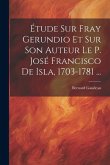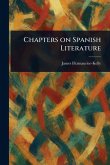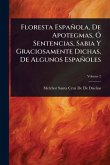This volume commemorates the second centenary of the birth of Fray Benito JerÃ3nimo FeijÃ3o, author of "Teatro CrÃ-tico Universal." Celebrated in Orense on October 8, 1876, the Certamen Literario features contributions likely from some of the most important Galician intellectuals of the period, including Emilia Pardo Bazàn. This literary work offers insights into the cultural and intellectual landscape of 19th-century Spain and the enduring legacy of FeijÃ3o's writings. It captures a moment of reflection on Spanish literary history. This work has been selected by scholars as being culturally important, and is part of the knowledge base of civilization as we know it. This work was reproduced from the original artifact, and remains as true to the original work as possible. Therefore, you will see the original copyright references, library stamps (as most of these works have been housed in our most important libraries around the world), and other notations in the work. This work is in the public domain in the United States of America, and possibly other nations. Within the United States, you may freely copy and distribute this work, as no entity (individual or corporate) has a copyright on the body of the work. As a reproduction of a historical artifact, this work may contain missing or blurred pages, poor pictures, errant marks, etc. Scholars believe, and we concur, that this work is important enough to be preserved, reproduced, and made generally available to the public. We appreciate your support of the preservation process, and thank you for being an important part of keeping this knowledge alive and relevant.
Bitte wählen Sie Ihr Anliegen aus.
Rechnungen
Retourenschein anfordern
Bestellstatus
Storno








